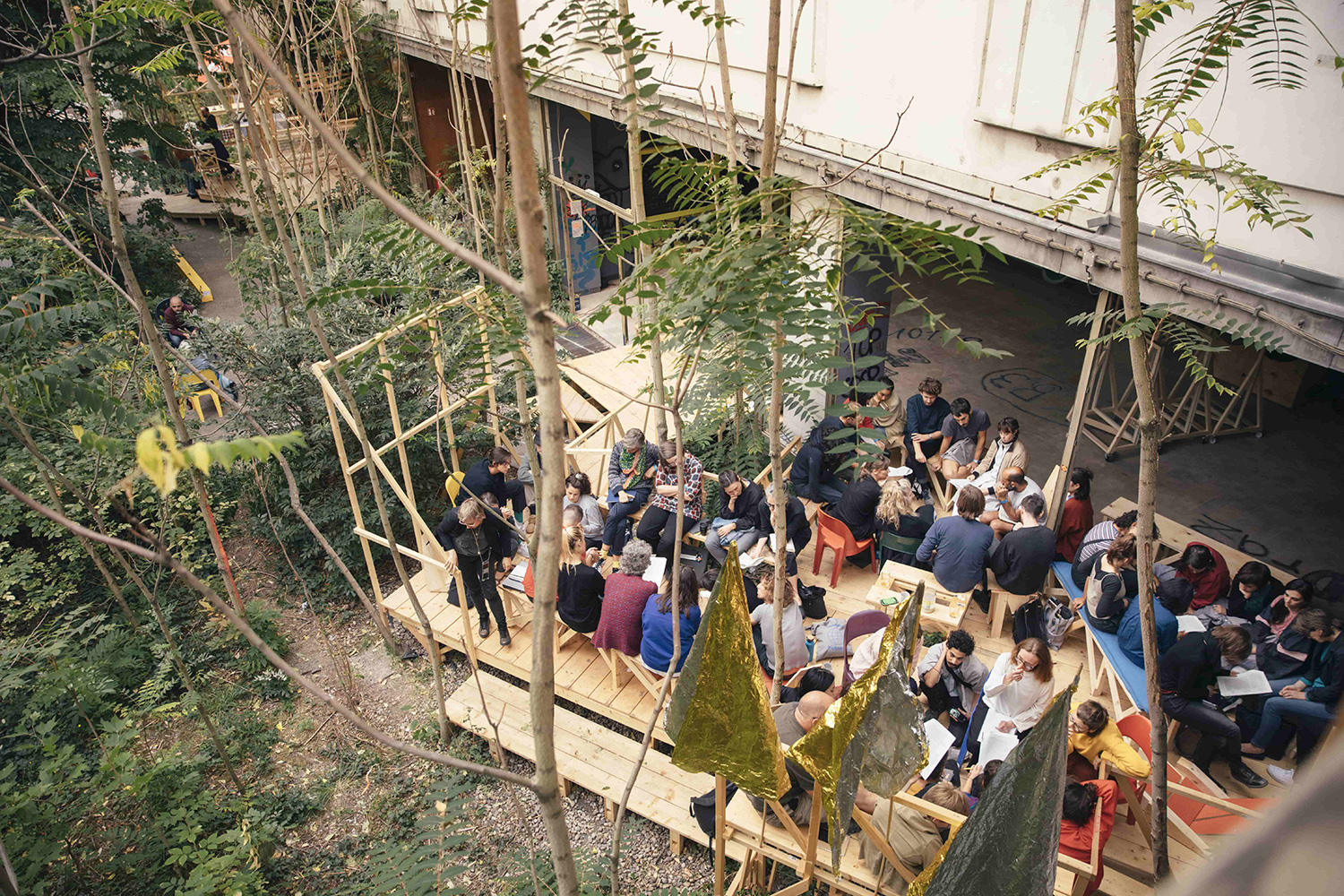
How can architecture express itself as productive cooperation, exchange, solidarity and living?
Making Futures Bauhaus+ is an action-research project that addresses the future of architecture as a collective resource. Initiated in 2018, on the centennial of the Bauhaus, the project emerged as a collaboration between raumlabor and the Berlin University of the Arts, organizing activities in Berlin, Istanbul, Palermo, and Oberweissbach.
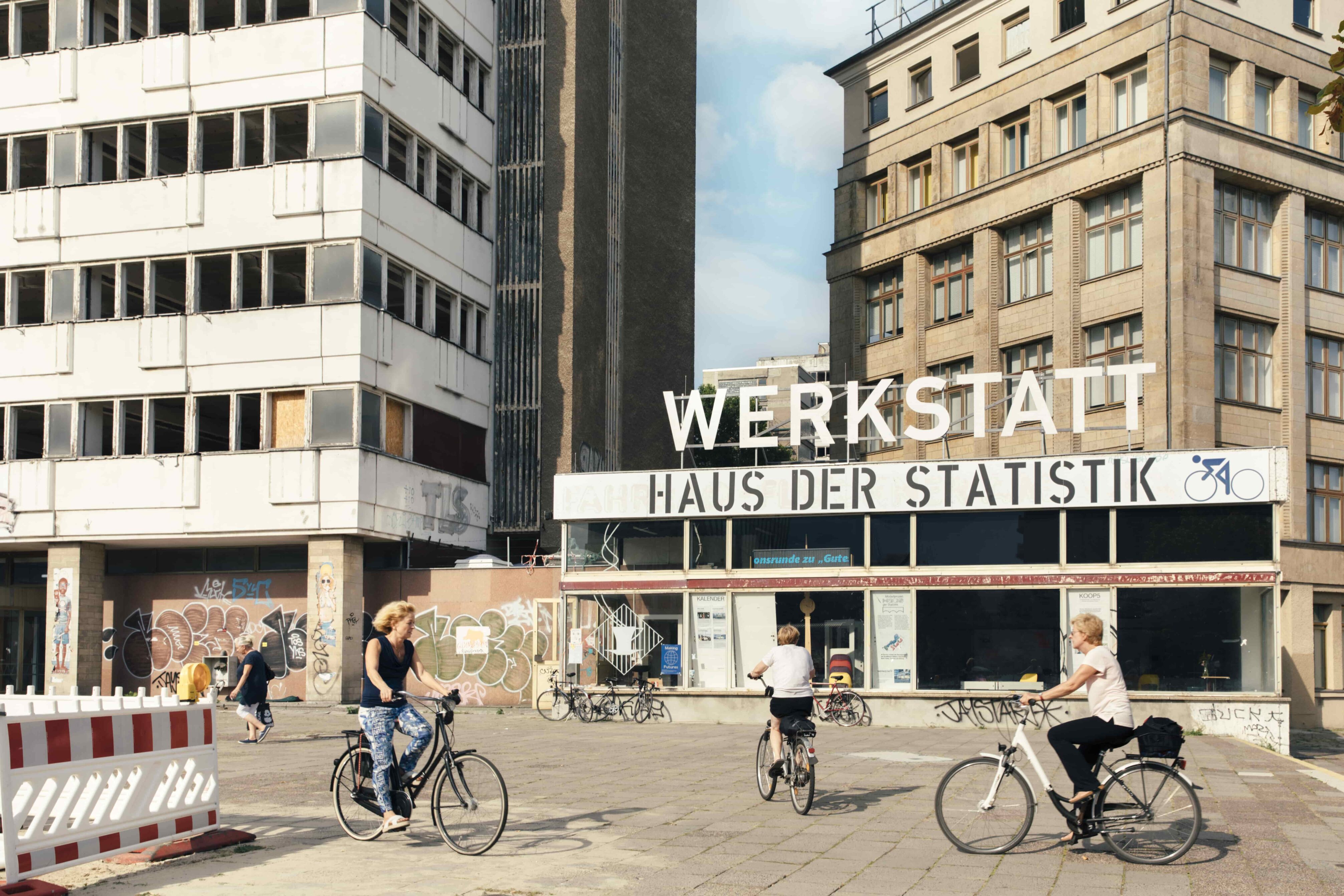
During the Making Futures Summer School at Haus der Statistik in Berlin, more than 150 participants come together in a temporary academy set up within the ruins of the former Department of Statistics of East Germany. Through Making Futures, this massive, abandoned building is transformed into a laboratory for exploring the city’s political imagination.
Over two weeks, this non-disciplinary learning environment hosts a diverse curriculum led by practitioners in spatial practices. Participants design, build, negotiate, maintain, perform, and celebrate an educational and convivial space both inside and around Haus der Statistik. Simultaneously, the school becomes a dynamic actor in urban transformation, creating a shared sphere of action that connects participants, neighbors, and the wider civic community.
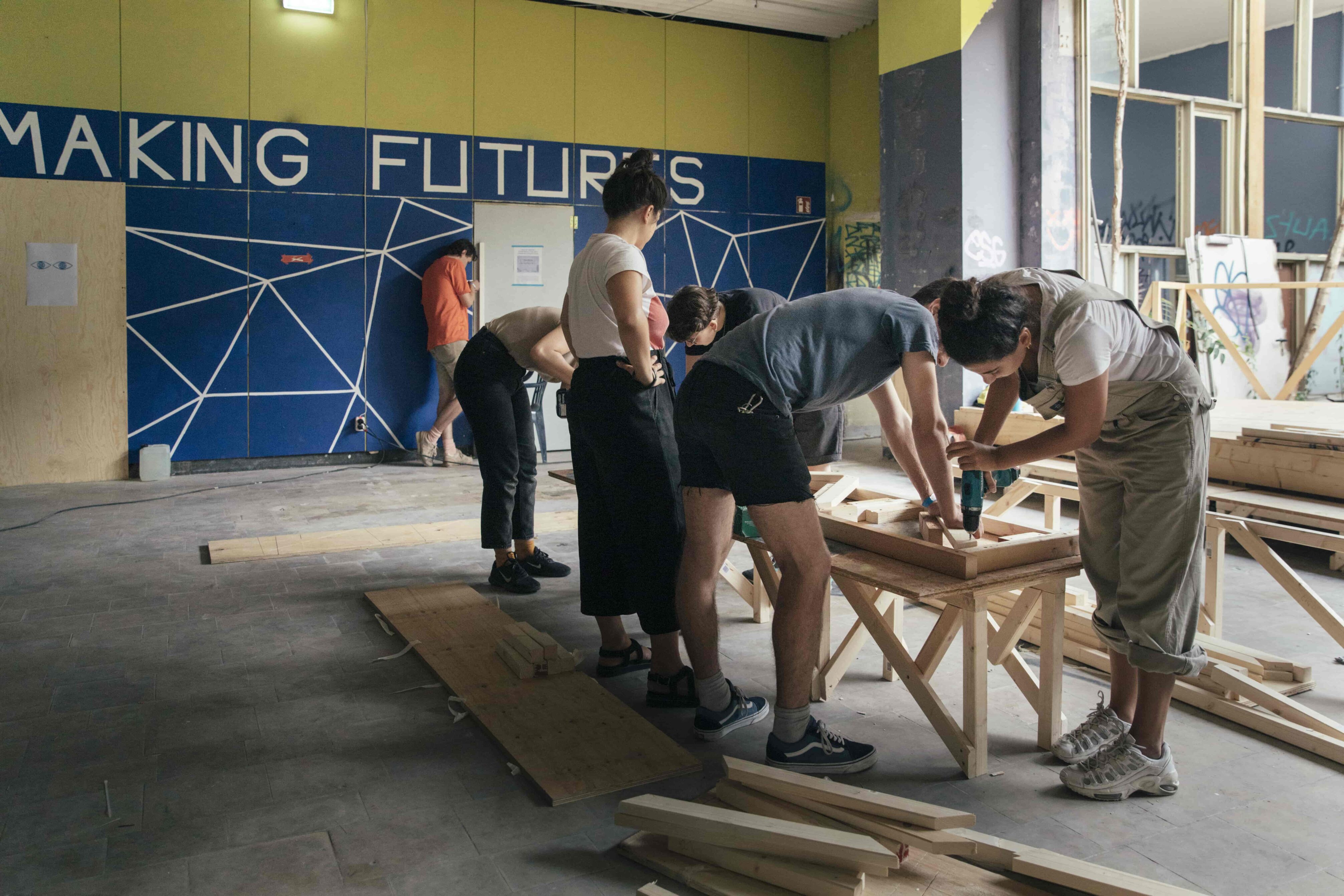
Over two weeks, participants construct experimental furniture pieces and engage in a program of talks, workshops, and lectures. Making Futures thus proposes, through practice, new forms of collective learning to tackle current urban challenges such as speculation, tourism, and pollution. This approach challenges the urbanism dictated by the real estate market and instead promotes a “furniture urbanism”: a city model built through small, mobile, and community-driven interventions.
During the construction workshop we lead with the participants, we collectively explore what we define as “pioneering uses” for Haus der Statistik: its infrastructure, furniture, methodologies of coexistence, and material conditions for hospitality.
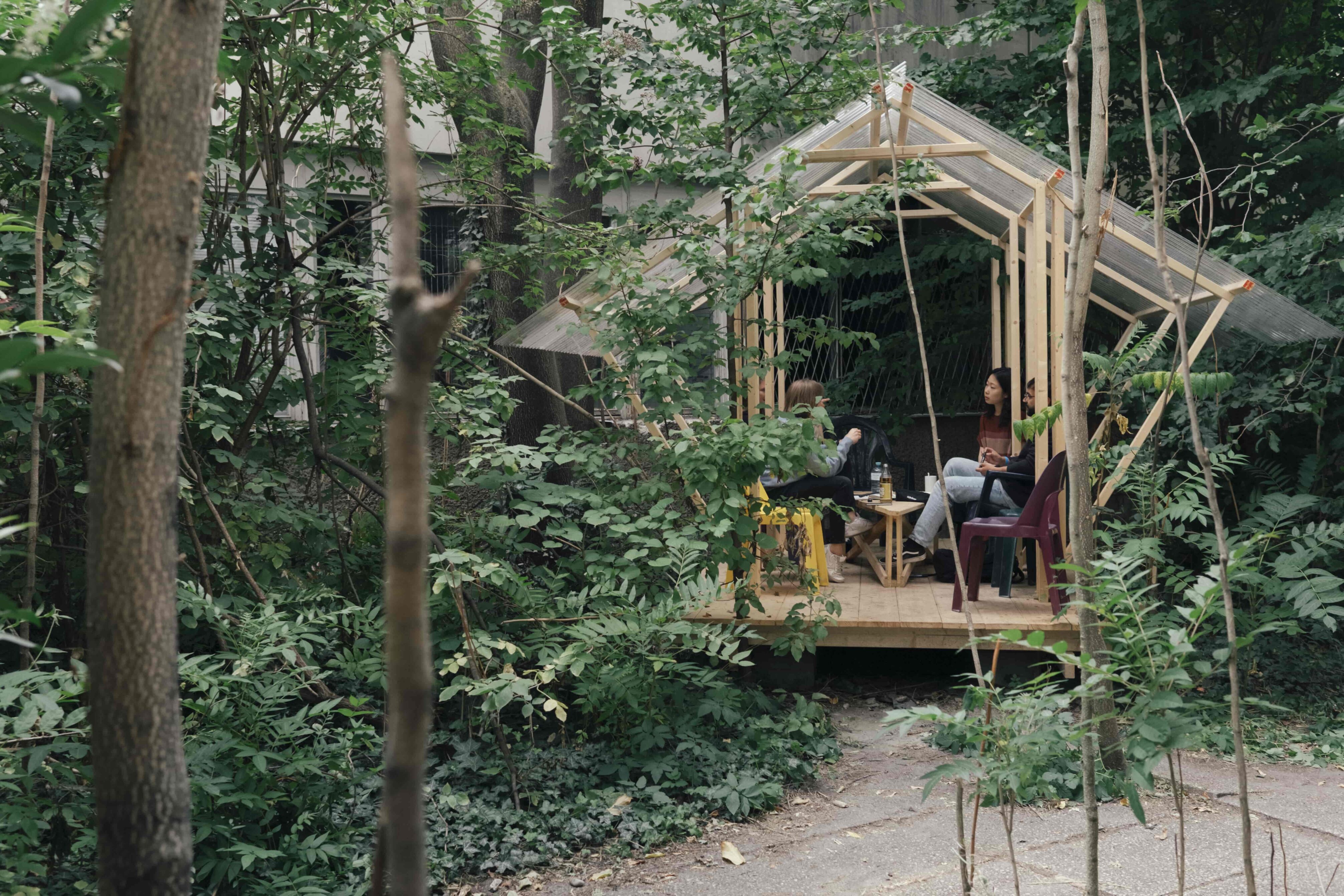
As in a domestic space, the kitchen, resting area, and meeting and work tables become prototypes for learning to cut wood, use machines, and understand the logics behind the materials. Each small piece of furniture then grows to meet the needs of the different groups participating in the Making Futures School.
The kitchen transforms into a large bar with a terrace in the wooded garden; the resting area expands into an intimate pavilion with a large bench-lounge, and the deliberation space turns into a beautiful terrace that can host assemblies, concerts, and conferences in various formats throughout the summer.
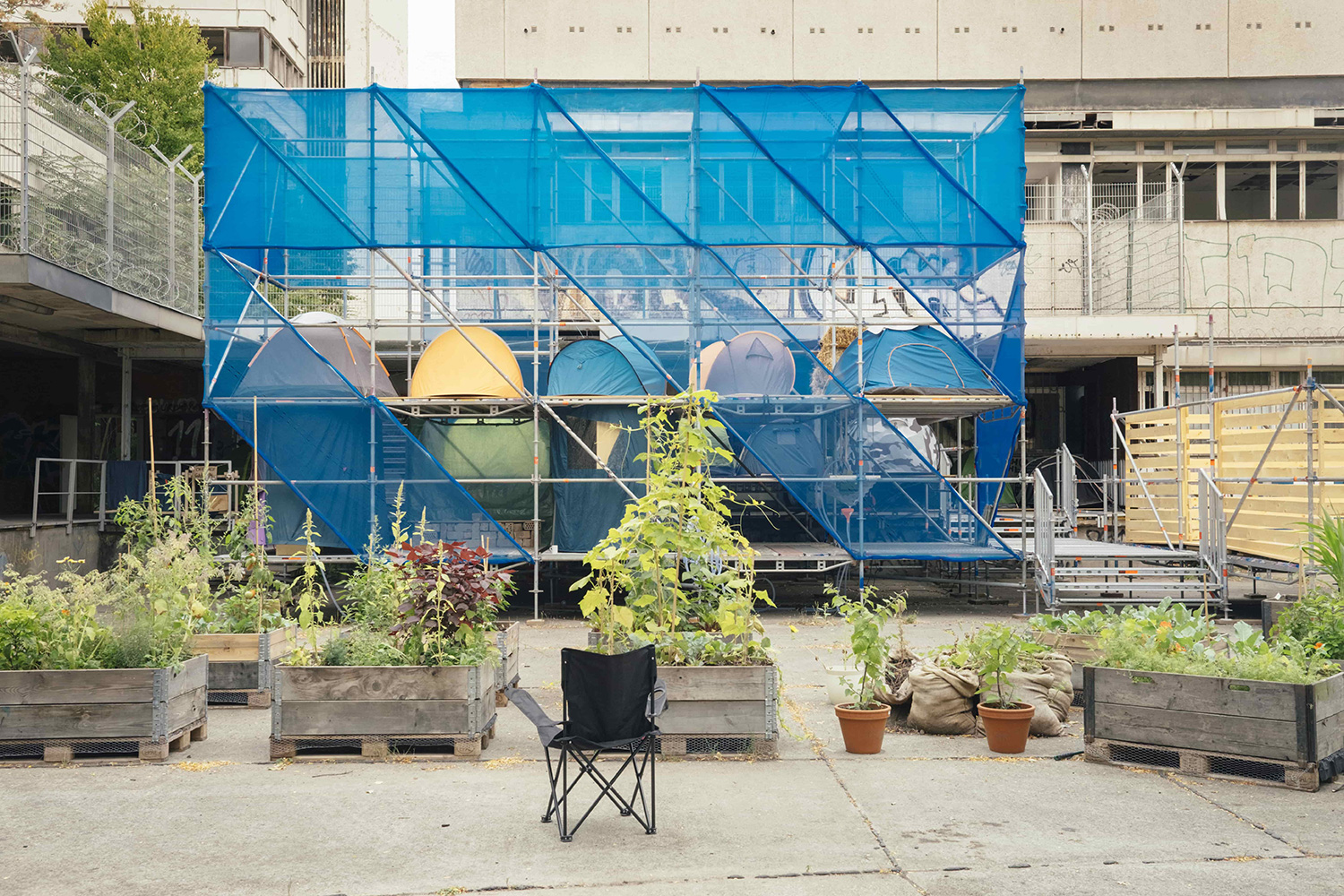
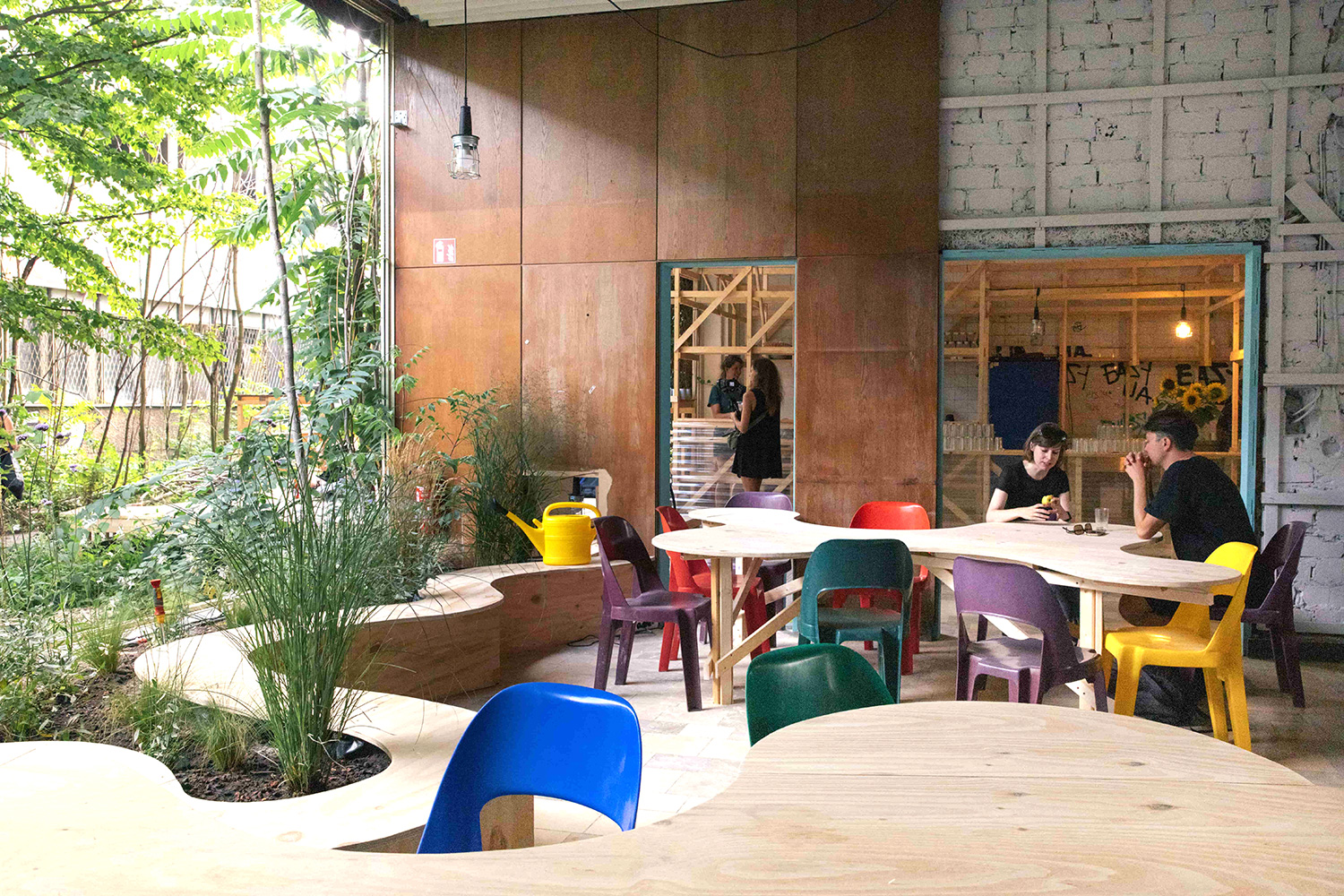
The participants of the school exceed expectations, challenging schedules and organizing autonomous activities. They start the day with yoga, prepare collective lunches, and launch a fanzine to share their experiences and reflections. To close, they organize a large “presentation party” to showcase their work not only to those inhabiting Haus der Statistik but also to the city at large.
Making Futures transforms Haus der Statistik, once dedicated to statistics and planning, into an example of how urban experimentation can shift from rigid planning to an open model that trusts in its own citizens. In doing so, Making Futures questions the traditional role of architects and urban planners as sole experts, diluting authorship and sharing the responsibility of imagining and building shared futures.
